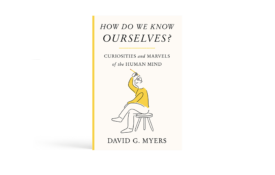-
Science Says Using YouTube and Google the Wrong Way Leads to Extreme Overconfidence
I've learned to do a lot of things by watching YouTube videos. Wire a four-way circuit. Replace the control board on a clothes dryer. Create complicated (at least to me) spreadsheet pivot tables. Granted, "learned" is an overstatement. I got a basic sense of what to do. Most of what I learned actually came from doing, and struggling, and eventually figuring out -- not from watching. Even though I went into those tasks, and plenty more, extremely confident that they would be a breeze. ...
-
There Are No ‘Five Stages’ of Grief
It was early springtime here in Australia when my son died. I took jasmine and dark-red sweet peas from my garden to his funeral and laid them carefully beside him, wondering how I could even keep breathing through the pain. His name was Adam. He was 38, and more than six feet tall, but he was still my baby. His birth, as my first child, brought me to the most joyous life turn I’ve ever gone through; his death, the most shattering. I’d spent the first weeks of his existence obsessing over him around the clock, preoccupied with the basics of survival and longing for a snatch of sleep. Now, in the first weeks after his death, I reeled through a twisted mirror image of the same experience.
-
To Get Kids Into Science, Just Do It
Developmental psychologists have long noted that very small children think a lot like scientists. Anybody who has spent time with a 2-year-old has witnessed their insatiable curiosity and constant experiments. Yet by the time most children are in middle school, they lose much of that innate interest and don’t see science as part of their future, especially girls and minorities. How can we counteract this phenomenon, given how important it is to encourage people to develop scientific skills and to know and care about science? What can we do to help children retain their natural scientific impulse?
-
Webinar: Essential Science Conversations
ARPA and You: Research Process and Funding Opportunities at Intelligence Advanced Research Projects Activity (IARPA) Wednesday, November 16, 2022 2:00 p.m. – 3:00 p.m. (ET) Register The federal Advanced Research Projects Agencies include behavioral and social sciences research in their funding portfolios, yet many psychologists are unaware of the opportunities and know little about how the agencies work. Now is the time to learn more!
-

Why Is Everyone Else Having More Fun? Part 2 of 3 With David Myers
Social psychologist David Myers joined Under the Cortex to speak about his new book and why we tend to think that everyone else is having more fun than us.
-

Was I Happy Then? Our Current Feelings Can Interfere with Memories of Past Well-Being
One reason happiness can seem so elusive is that our current feelings can interfere with memories of our past well-being. Analysis of four longitudinal surveys.

